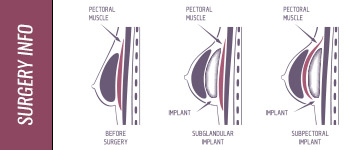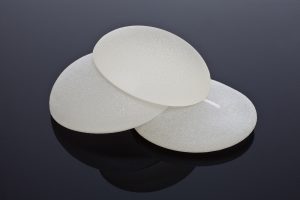Women all throughout Saudi Arabia are undergoing changes to their appearance, but you’d never know it. Due to their religious customs and national culture, these cosmetic alterations are buried underneath heavy robes and long veils. Nevertheless, the incidence of plastic surgery in Saudi Arabia is rising rapidly, even if the results are being hidden from the public by traditional religious garb.
It appears that the global information age has infiltrated just about every corner of the world, and the Middle East is no exception. Over the past decade, several Western norms have begun to take root in Saudi Arabia. One of these is a greater acceptance of plastic surgery — at least by the Saudi women.
Studies indicate that the most popular procedures for women are liposuction, breast augmentation, and rhinoplasty. Men are most commonly seeking hair implants and nose jobs.
However, Saudi Arabian culture remains dominated by Islamic tradition. In recent years, this rise in the popularity of plastic surgery has created some tension among the community, creating a rift between those who desire to join the secular world and those who wish to retain a traditional religious society.
For the first time, Islamic clerics have been forced to grapple with the acceptability of plastic surgery in Saudi Arabian culture. What is sanctioned by Allah? What is forbidden? Three years ago, Muslim clergymen met with plastic surgeons to determine whether plastic surgery procedures were in violation of the Islamic tenet prohibiting us from tampering with God’s intended creation. At this meeting, a consensus (albeit a rather arbitrary one) was reached between the secular and the religious.
The following procedures have been sanctioned by the Islamic clergy:
- Breast augmentation for unusually small breasts
- Cosmetically altering features that cause a person grief
- Reversing damage sustained in an accident
The following procedures have been forbidden:
- Undergoing an unsafe procedure
- Changing the shape of a “perfect feature” just to resemble a singer or actress
I’m not exactly sure how these guidelines were arrived at. They seem about as arbitrary as the beliefs of pro-lifers who claim that abortion is acceptable in cases of rape and incest but not for any other reason. If it is acceptable in some circumstances, shouldn’t it be acceptable in all circumstances? If it is a moral issue, then it should never be allowed. If it is not, then it should always be allowed. It seems to me that the same should hold true with plastic surgery.
Most likely, this consensus resulted from a realization on the part of Islamic clergy that plastic surgery was not going to go away in their culture, no matter how forcefully they tried to condemn the practice. At some point, you must get with the times and accept what people are no longer asking your permission to do. Otherwise, you will undermine your authority in other situations.
Interestingly, it seems that fundamentally, Islamic tenets would lean towards a rejection of plastic surgery. This is in sharp contrast with Judeo-Christian tenets, which lend more of a religious approval to plastic surgery. Regardless, in an age where physical appearance trumps religious faith in many corners of the world, it is inevitable that such a view would eventually begin to permeate Islamic countries that have been exposed to Western cultures.
I do find it curious that Muslim women who still hold onto traditional attire such as heavy robes and long veils would feel compelled to opt for plastic surgery. After all, these women are spending a great deal of money to keep the results of their procedure hidden from public view. Why go through such major surgery if you cannot show off the results?
One Saudi woman in her late 20s offered an explanation for this phenomenon. According to this woman, who wished to remain anonymous, many Saudi women are already wearing designer clothes and sport trendy haircuts underneath their robes. This behavior has set the tone for a greater acceptance of plastic surgery.
These Western styles and cosmetic makeovers are intended to be displayed to peers at women’s gatherings, to husbands in the privacy of their own homes, and when traveling abroad. According to our anonymous Saudi woman, private gatherings and trips abroad occur frequently enough to justify the expenditure.
While it appears that plastic surgery may become more firmly entrenched in Saudi culture over the next decade, a tension still exists between the modern and the traditional. This tension is manifest by the fact that there is a broad spectrum when it comes to what the nation’s plastic surgeons are willing to perform. Depending on your desired procedure and your reasons for seeking surgery, you may need to consult a plastic surgeon with a more liberal disposition in order to find someone willing to perform your surgery.
Of course, if you are unable to find a Saudi doctor to perform your procedure, you can always come to the United States, where plastic surgeons do not accept or decline potential patients based on religious doctrine.





Altering a feature that give them grief? That is pretty broad. I'm not sure I understand how these types of procedures can truly be governed without an official holding the patients hand at every appointment.